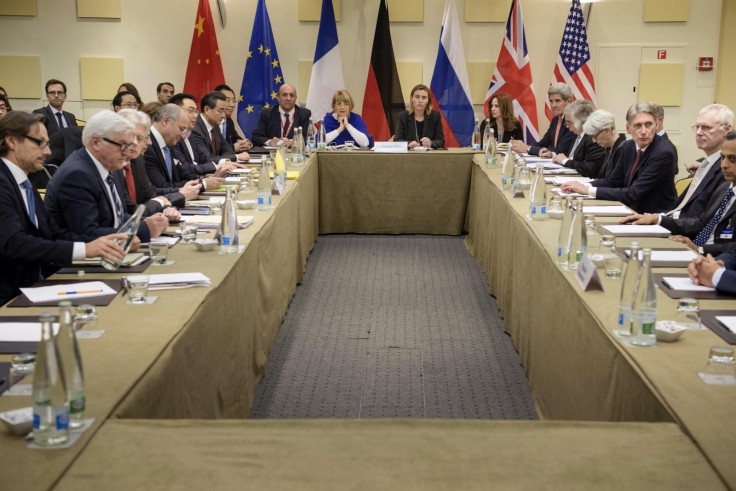Iran nuclear talks progress hampered by 'tricky issues' as deadline looms

Iran and the world powers are racing to establish an agreeable framework for a nuclear deal in Switzerland as the self-imposed deadline is just hours away.
Delegates have said significant progress has been made between the two sides but "tricky issues" remain unresolved.
Foreign ministers from the six permanent UN Security Council members – the US, the UK, France, China, Russia and Germany – are engaged in marathon crunch talks with their Iranian counterpart to finalise the deal which remains elusive for more than a decade.
"We are working late into the night and obviously into tomorrow. There is a little more light there today, but there are still some tricky issues. Everyone knows the meaning of tomorrow," said US Secretary of State John Kerry following the negotiations on Monday, 30 March, which went late into the night.
The framework of the accord, if hammered out, will serve as a prelude for a comprehensive permanent agreement which the world powers and Iran intend to sign in June.
The two major sticking points are the pace at which the UN-engineered sanctions would be lifted, and limiting Iran's ability to do research and development on advanced nuclear technology.
Reflecting the mood of most other delegations at the conference, Chinese Foreign Minister Wang Yi said he was "cautiously optimistic" over a deal in Lausanne.
German Foreign Minister Frank-Walter Steinmeier said: "We must take precautions to ensure that what happens after the 10 years expire really is verifiable and transparent. We cannot allow there to be a really explosive development after 10 years."
The Iranian side said the representatives were peeling layers upon layers of issues which are hampering the progress in the negotiations.
"We worked a lot on different ideas and possible solutions for the remaining differences. Still, we are not in a position to say we are close to solving these issues. But we are hopeful and continue our efforts," Iran's Deputy Foreign Minister Abbas Araghchi, told the country's state media.
© Copyright IBTimes 2025. All rights reserved.






















